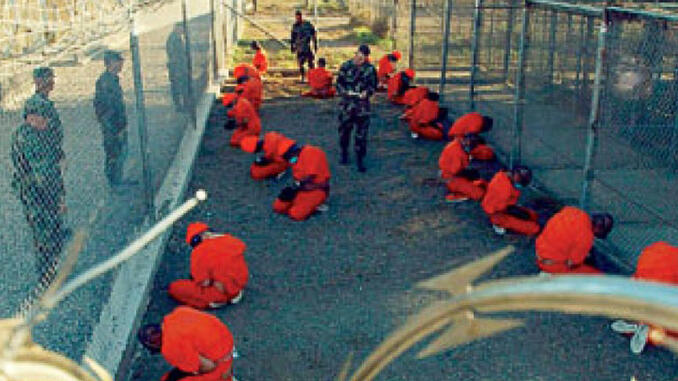
President Trump in his State of the Union address last week announced he was re-opening the prison at Guantanamo Bay, Cuba again to new enemy combatants. In his address he stated, “Terrorists who do things like place bombs in civilian hospitals are evil. When possible, we annihilate them. When necessary, we must be able to detain and question them. But we must be clear: Terrorists are not merely criminals. They are unlawful enemy combatants. And when captured overseas, they should be treated like the terrorists they are.”
The Guantanamo Bay prison was formed out of what became necessity. Shortly after the U.S. invaded Afghanistan in response to the attacks on 9/11, members of al Qaeda started to be captured and detained. The question arose what to do with the captured fighters. They were not soldiers in any traditional sense recognized by the Geneva Convention which made them in fact civilians. It would be illegal to kill them under international law. And because of their threat, they could not be released lest they return to combat against the United States. Even more, because of the methods used to capture many of them—often using covert means—they could not be tried in any normal civilian court system because that would risk making classified information public.
What to do with the “enemy combatants” was a legal conundrum being faced at a time urgency was at a premium. The answer the Bush administration came up with was special military tribunals to prosecute terrorists captured in Afghanistan, and they would be detained at Guantanamo Bay, Cuba—a legal no-man’s-land. At Guantanamo, prisoners, at least under the Bush administration’s legal interpretation, could skirt normal civilian laws that would apply if the prisoners were held in the United States.
The U.S. Supreme Court eventually ruled that the special military tribunals, and thus the original reasoning for keeping prisoners at Guantanamo Bay, was unconstitutional. However, this did not happen until 2008, leaving it up to the Obama administration to handle the original question of what to do with those detained at Guantanamo. Obama had made campaign promises to close the facility at Guantanamo Bay as soon as he took office. His promises proved to be naïve and Obama did not originally understand the political and legal Gordian knot the Bush administration had created to keep captured enemy combatants off the battlefield for as long as possible. While Obama was able to reduce the numbers of combatants at Guantanamo, he was never able to fully close it
Now, with President Trump undoing Obama’s efforts to close Guantanamo, any new reasoning seems out of place. For one, there is no urgency like in the days immediately after 9/11. The Bush administration number one priority after 9/11 was to remove those terrorists who were threatening America off the battlefield, even at the expense of properly prosecuting detainees in later court cases. Without that urgency, any sound legal reasoning is hard to justify.
